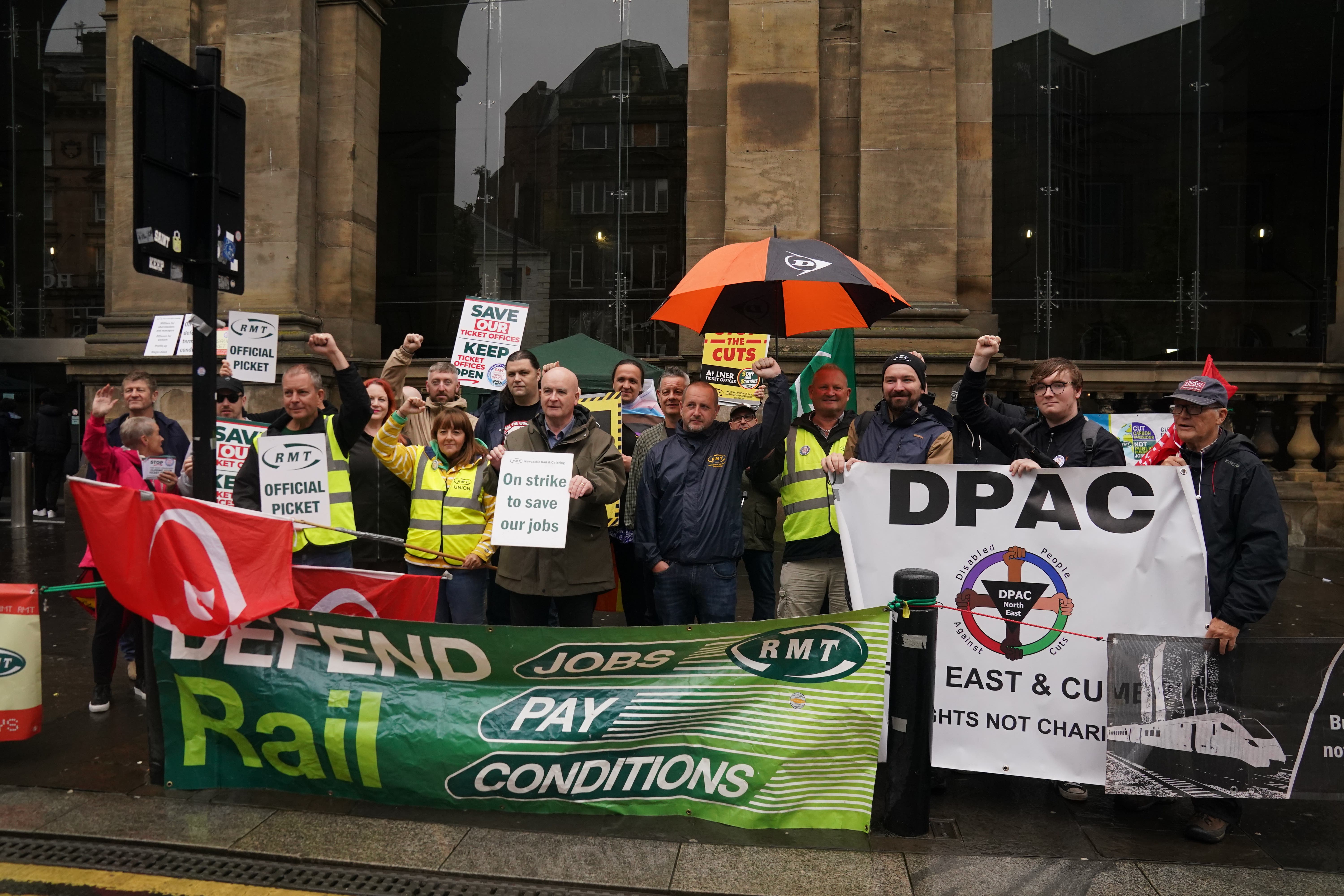Railway services returning to normal after industrial action
There is growing anger over the controversial plan to close most railway ticket offices.

Rail services were returning to normal on Sunday after another strike by thousands of workers and the end of a week-long ban on overtime by train drivers.
Members of the Rail, Maritime and Transport union walked out on Saturday for the second time this week, with another 24 hour strike planned on July 29 in a long running dispute over pay, jobs and conditions.
The drivers union Aslef is holding another week long overtime ban in the first week of August.
Services were disrupted on Saturday, with some areas having no trains all day.
There will be a knock-on effect of the industrial action on Sunday morning.
Meanwhile, services on South Western Railway were disrupted because of a tree blocking the line between Guildford and Haslemere.
Cancellations and delays were expected until 11am.
The RMT published a report claiming that two thirds of profits made by train operators are “locked away” in shareholder dividends.
General secretary Mick Lynch said: “Train companies invest little or nothing in our railways and make completely unjustifiable profits which they squirrel away in shareholder dividends and bosses pay packets.
“It is a scandal that the travelling public is being ripped off by greedy rail privateers while at the same time the government oversees a corrupt system and prolongs a rail dispute for political reasons.
“It is high time this profits bonanza gravy train was halted, a deal done with the RMT and the railways returned to public ownership for the good of the country and railway workers.”
The Rail Delivery Group said how the railway is funded has changed.
A statement said: “The franchise model no longer exists, and train operators are paid on a small, performance-related fixed fee basis.
“They make a profit margin, typically 0.5%, just like all other government suppliers.
“Even if that fee were removed in its entirety, it wouldn’t come close to funding the pay rise set out, which would cost almost double the profit margin for one year alone.
“Even before the pandemic, under franchising, operators retained just 2p of every pound raised through ticket sales.”
The RDG said that since the first RMT strike in June 2022, industrial action had cost the sector around £620 million.
A Department for Transport spokesperson said: “The Government has met the rail unions, listened to them and facilitated improved offers on pay and reform.
“The union leaders should put these fair and reasonable offers to their members so this dispute can be resolved.”
There is growing anger over the controversial plan to close most railway ticket offices.
Unions held protests across the country on Saturday, while passenger groups continued to criticise the plans.
Bookmark popover
Removed from bookmarks